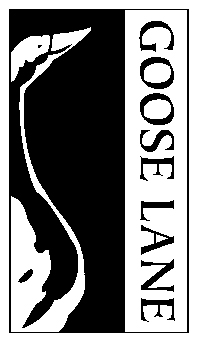The Rest is Silence was shortlisted for the Amazon.ca First Novel Award, the Jim Connors Dartmouth Book Award, and the Ottawa Book Award. Author Scott Fotheringham has a PhD in molecular genetics from Cornell University, which lends a lot of credence to some of the book’s elements involved with it, including a certain character’s preoccupation with ridding the world of plastic.
We caught up with Fotheringham for an exclusive interview.
In The Rest is Silence, one of your characters specifically targets all plastic as something to get rid of, as it is harmful to the environment. If you were to continue to write through this character’s particular perspective, do you think they would make allowances for things made of plastic like medical equipment? Why/why not?
Hmmm, the plastic angle of my book and of Benny's character were secondary to their larger concerns. How can we make sense of the death of a parent? How can we accept or at least live with the environmental degradation of the world? I doubt Benny would be concerned about the nuances of what plastics were destroyed given the state of the world.
How did you come up with a character who hates plastic so much and what drove you to write about this?
My concerns about the destruction of the natural world propelled me to write this. I use fiction to ask questions about things I can't understand. For example, I love birds and have watched the number of birds plummet over my lifetime, while the population of humans has more than doubled. I had written an earlier version that read like a thriller, and while it didn't work, the plastic angle was interesting to me. It was a type of gedanken experiment for me, imagining what would happen if plastic rapidly disappeared from the world.
What was your reaction when Collins Dictionary came out with "single-use" as the 2018 word of the year?
I was not aware of that. But single-use plastic is one of the things we have invented and continue to use that distresses me.
When you were writing The Rest is Silence, was there an idea that this book may drive the conversation or address ideas regarding plastic affecting the environment?
Sure. You always hope that readers will connect with the ideas. One of the most interesting interview requests I had was from Heather Caliendo of Plastics Today.
I also interacted with readers on my old blog about these ideas, which I liked.
There are really important items we use plastic for, such as medical equipment. Do you think there will be a point where we'll begin creating alternatives for these, or will we continue to use plastic?
I don't see any indication that we'll stop using plastic. Biologic medicines and other pharmaceuticals rely more and more on single-use technology, much of which is plastic. Sometimes it's incinerated to create heat, but much of it is landfilled. Humans aren't good at learning from our mistakes. I don't see why we would start with medical equipment when we can't even figure out how to stop using plastic for water bottles that we fill with tap water.
There is a scene in your book, which I cannot discuss for fear of spoilers, which you allude to throughout, but still manage to make a surprise. How hard was it to keep that narrative and the surprise under wraps?
I didn't think I had. I had read the book so many times (obviously), as had my editor. Neither of us thought it would be a surprise. It was fun trying to make it work, and I'm glad it does for many readers.
Thank you, Scott!
The Rest is Silence will be available in paperback in February. Order it now!
